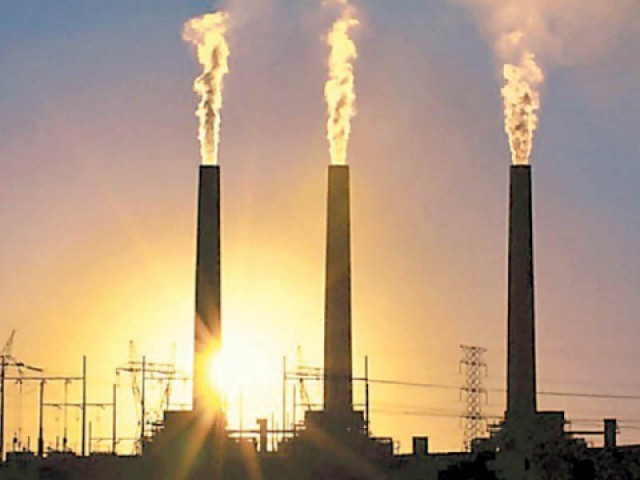Power plants: Cap on furnace oil consumption under study
If implemented, it will ease pressure on forex reserves, bring down electricity prices.

The government is studying a plan that focuses on putting a cap on oil consumption in electricity production in an effort to achieve a better fuel mix, ease pressure on foreign exchange reserves and reduce electricity prices further, sources say.
Pakistan’s oil import bill has already dropped over 40% over the last three months because of a sharp fall in global crude prices.
The plan will also help bring down the government’s power subsidy payments and provide significant relief to the consumers with a reduction in electricity tariffs.
Already, the government has experienced this with a decline of 250,000 tons in oil consumption in November, which led to a substantial decrease of Rs2.32 per unit in electricity prices under the fuel price adjustment formula.
According to sources, Prime Minister Nawaz Sharif has directed the Ministry of Water and Power to frame proposals for setting a limit on oil consumption in power plants in order to improve the fuel mix.
At present, the country has a poor energy mix as a major volume of electricity is generated by thermal plants.

Power plants need 16,000 tons of oil a day to meet the requirements of electricity generation. Some plants including Muzaffargarh Power Station and Kot Addu Power Company (Kapco), say sources, have been shut down following directives of Water and Power Secretary Younis Daga to save fuel cost.
“Power plants have been lifting an average of 3,000 tons of furnace oil per day from Pakistan State Oil (PSO) against the requirement of 16,000 tons since November 14 in order to bring down the electricity production cost,” an official said, adding the plants had now placed orders for 9,000 tons per day to run their units without any interruption.
The water and power secretary has developed a strategy aimed at shutting down inefficient power plants and running the most efficient ones.
Since the Musharraf government, over Rs2 trillion has been paid to the power sector on account of subsidy.
However, the government has refrained from taking action against captive power plants of the powerful textile lobby, which are the most inefficient but still they are receiving gas. Such plants have average 18-20% efficiency.
Earlier, gas distribution companies had suspended supplies to the captive power plants but the prime minister stepped in and gas supply was restored.
On the other hand, many efficient plants such as Saif, Halmore and Orient with a 54% efficiency rate have not been operating because of unavailability of gas since 2011. They only produce electricity at times of acute shortages.
With heavy reliance on furnace oil for power generation, the consumers are not only forced to pay a high tariff, but they also face prolonged outages, say officials.
“It is a crime that inefficient power plants are provided gas whereas the efficient ones are lying closed,” an official remarked.
During the previous government of Pakistan Peoples Party, he pointed out, the National Accountability Bureau (NAB) had initiated an inquiry into the provision of gas to different sectors and termed the supply of gas to inefficient plants at the cost of efficient independent power producers a “criminal act”.
Published in The Express Tribune, December 13th, 2014.
Like Business on Facebook, follow @TribuneBiz on Twitter to stay informed and join in the conversation.



















COMMENTS
Comments are moderated and generally will be posted if they are on-topic and not abusive.
For more information, please see our Comments FAQ